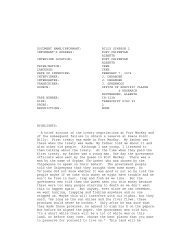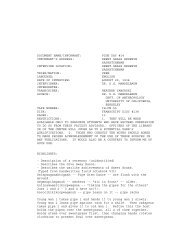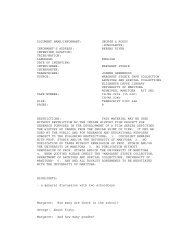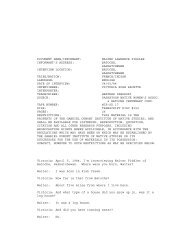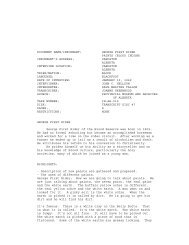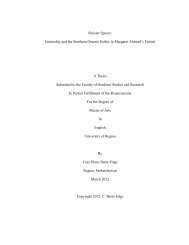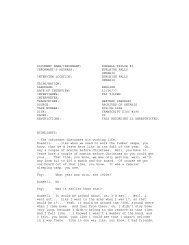Contents of It's not All in Your Head by Asmundson and Taylor
Contents of It's not All in Your Head by Asmundson and Taylor
Contents of It's not All in Your Head by Asmundson and Taylor
You also want an ePaper? Increase the reach of your titles
YUMPU automatically turns print PDFs into web optimized ePapers that Google loves.
care consumption when they overuse primary care, pathology test<strong>in</strong>g, <strong>and</strong> secondary care<br />
resources (Conradt, Cavanagh, Frankl<strong>in</strong>, & Rief, 2006). In fact, the economic costs <strong>of</strong> the<br />
disorder have been estimated at 10% to 20% <strong>of</strong> the medical budget <strong>of</strong> the United States<br />
(Hollifield, Pa<strong>in</strong>e, Tuttle, & Kellner, 1999). People with health anxiety may assume the<br />
‗sick role‘, avoid daily activities <strong>and</strong> employment, <strong>and</strong> repeatedly discuss their health<br />
concerns (<strong>Taylor</strong> & <strong>Asmundson</strong>, 2004). They may also avoid all situations or stimuli<br />
related to disease such as hospitals, hospital staff, <strong>and</strong> sick <strong>in</strong>dividuals (<strong>Taylor</strong> &<br />
<strong>Asmundson</strong>, 2004). Reassurance seek<strong>in</strong>g, repeated bodily check<strong>in</strong>g, seek<strong>in</strong>g medical<br />
treatments, <strong>and</strong> avoidance are the key behavioural reactions to health-related fear.<br />
There are <strong>not</strong>able similarities between health anxiety, panic disorder, <strong>and</strong><br />
obsessive disorders (Salkovskis, Warwick, & Clark, 1993; Warwick & Salkovskis, 1990;<br />
Wattar et al., 2005). Panic disorder tends to <strong>in</strong>volve the fear that a catastrophic health<br />
event is occurr<strong>in</strong>g when bodily sensations are experienced; health anxiety <strong>in</strong>volves the<br />
fear that a serious medical disease is gradually develop<strong>in</strong>g when bodily sensations are<br />
experienced or when illness <strong>in</strong>formation is encountered (Wattar et al., 2005). Obsessive<br />
compulsive disorder (OCD) is a<strong>not</strong>her disorder characterized <strong>by</strong> catastrophic beliefs.<br />
Individuals with OCD believe they can prevent catastrophic events from happen<strong>in</strong>g if<br />
they perform physical or mental rituals (Wattar et al., 2005), which is <strong>not</strong> the case for<br />
health anxiety. Despite the similarities, the presence <strong>of</strong> disease phobia (as opposed to<br />
bodily preoccupation <strong>and</strong> disease conviction) is the factor that can usually discrim<strong>in</strong>ate<br />
9



